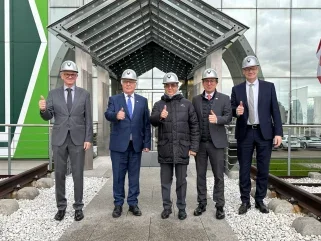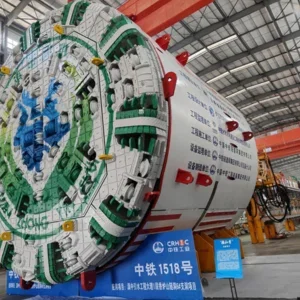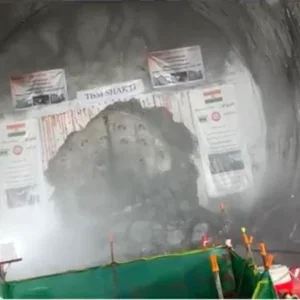
Herrenknecht is to supply two mixshield TBMs for India’s Mumbai Coastal Road Project North.
The two machines will be deployed on the Versova-Dahisar Link Road in Mumbai and, with a 15.62m diameter, they will be the largest TBMs in India.
The 22.93km-long Versova-Dahisar Link Road (VDLR) is the second phase of the Mumbai Coastal Road Project (MRCP). VDLR packages C and D cover two 3.1km parallel tunnels.
The project will connect the suburbs of Versova and Dahisar along Mumbai’s western coastline, easing congestion on major routes such as the Western Express Highway. It is expected to reduce journey times by 70%. Underground tunnel sections will play a critical role, particularly in connecting sensitive areas such as the city centre and densely built urban regions.
The project owner is Brihanmumbai Municipal Corporation, and the client Megha Engineering & Infrastructures Ltd (MEIL).
The two mixshields are designed for the challenging geological conditions of the region which consist of slightly weathered basalt with a uniaxial compressive strength (UCS) of up to 150MPa. The overburden of the tunnels ranges from approximately 13-23m. To ensure safe operations under these conditions, the TBMs are designed for a maximum operating pressure of 5 bar.
The TBMs will be manufactured at Herrenknecht’s Chennai plant in India, using core components from Schwanau. This will boost local expertise and reduce transport distances.
“The tunnel sections of the Versova-Dahisar Link Road are a prime example of sustainable urban mobility. We are proud to support this significant project with our cutting-edge technology,” said Herrenknecht chairman Dr.-Ing. E.h. Martin Herrenknecht.
Herrenknecht says the project highlights its strong commitment to India. Recently the Indian ambassador to Germany, Ajit Gupte, visited Herrenknecht’s headquarters in Schwanau, underlining the strategic importance of the Indian market, one of the world’s fastest-growing markets for tunnelling.
Herrenknecht has supplied TBMs for projects such as the Delhi and Chennai metros and the Rishikesh-Karnprayag railway tunnel project in Uttarakhand. With an office in Delhi and a production facility in Chennai, the company employs around 150 people in the region.
“Only a few other countries are investing as ambitiously in the expansion of infrastructure as India. We are excited to be part of this dynamic growth story,” said Dr Herrenknecht.
Ambassador Gupte said Herrenknecht’s contribution to India’s infrastructure development showcased the potential of collaboration between the two countries.







